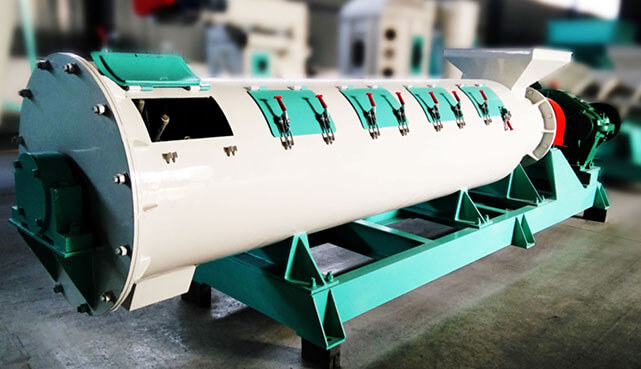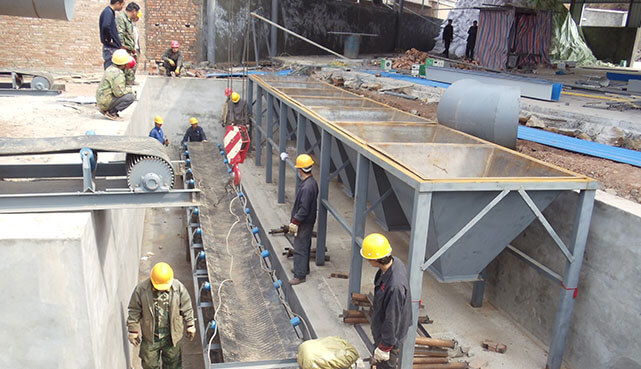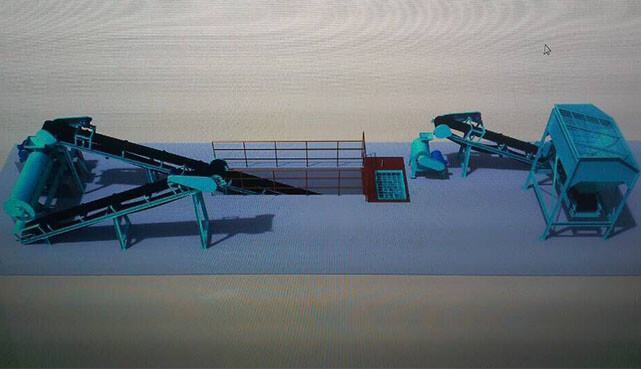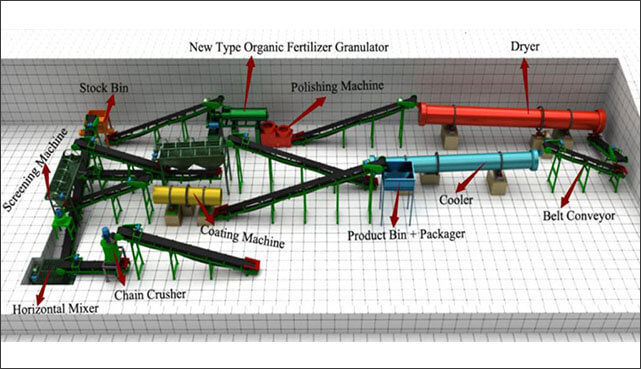Organic Fertilizer – a Valuable Alternative
Over a long period of time, chemical fertilizer has dominated the fertilizer market. Though using chemical fertilizers in farming guarantees sure harvests, excessive application cause an alarming soil degradation and greatly threatens the environment. In turn, crop yields decline due to unrational & imbalanced application of fertilizers.
This issue has raised concerns of environmentalists who are keen on environmental protection.
They are now into the re-introduction of organic farming.
Organic farming is a farming system that promotes, among other practices, the use of organic fertilizers. Compared with chemical fertilizer, organic fertilizer protects the soil, environmental friendly. Its raw materials are less expensive than those of chemical fertilizer. What’s more, fertilizers from organic wastes and manures are generally considered a low-analysis fertilizer with macro-nutrient content < 10% by weight. Rich in micronutrients such as iron, boron, and sulphate, organic and organic based fertilizers do not typically require the supplementation of micronutrients that inorganic fertilizers do.
The Necessity of Granulating Organic Matters
Organic matter is an essential component of healthy soils. All sound farming practices integrate and allocate available organic materials to maintain or improve soil fertility. Households, animal farms and food processing plants are producing huge quantities of waste materials every day. These waste materials are the raw materials of organic fertilizers.
1) Kitchen Garbage: Every household is producing a huge quantity of kitchen garbage every day.
2)Animal Droppings (Muck and Dung): Zoo and animal farms (chicken, pig, etc.) are producing huge quantities of animal droppings (Muck & Dung) every day. Chicken manure, cow manure, sheep manure, horse dung, rabbit dung, etc.
3)Meat Sludge and Animal Carcasses: Fish processing plants, animal slaughtering houses and food processing plant are also producing huge quantities of meat sludge.
4)Industrial waste: Vinasse, vinegar residue, cassava dregs, sugar residue, furfural residue etc.
5)Agricultural residues: Crop straws, bean pulp, cottonseed meal etc.
However, as reported, there are quantities of organic waste exist in urban and rural areas, containing household refuse, municipal sludge, animal waste, agricultural waste like straw as large quantities of nutrients that plants needed are contained in agricultural byproducts which are wasted. In last few years, most of these organic residues are burned currently or used as land fillings. That is not only a waste of sources, but also can pollute the environment and may cause some fire.
With the development of technology, people began to make the wastes into fertilizer for recycling and protect the environment and the soil quality. Human beings use these organic wastes to produce organic fertilizer, and they also use the fertilizer machine to produce organic granules, which is a fabulous way to turn waste into treasure. Thus organic granulation, as a favorable alternative, is returning to people’s life. It is believed that organic fertilizer will take great market share with its cheap price and benefits to the environment in the very near future.
Benefits of Organics Granulation
The main function of organic fertilizer is applied to the soil to provide plant nutrition. After granulation, toxic and harmful substances in organics have been eliminated, with the beneficial substances left to supply crops with nutrient requirement. Actually, there are 2 type of organic fertilizer. One is powdered fertilizer, the other being fertilizer granules.
Compared with powdered fertilizer, organics granulation has various benefits:
● Easy-to-use: Powdered fertilizer is featured with light relative density which is easily blown away by the wind when applying to field crops. So compared with powdered fertilizer, the granules are dry and compact. Thus, they are more easily handled and applied. Dry granules are also odor-free, so the offensive smell associated with raw manure is mitigated.
● Convenient storage: Dry granules can be stored and used as needed. It can be stored on-farm and are much less costly to transport if needed.
● Environmentally friendly: Granulated fertilizer could reduce the moisture absorption of fertilizer. Thus, it can relieve the pollution of environment.
● Enhance the effect of fertilizers: Adding some inorganic components in granular fertilizer can enhance the effect of fertilizers. If we add the composition of inorganic to powdered fertilizer, they would be easy to moisture absorption and agglomeration.
● Reduced runoff: The over application of raw manure results in excess nutrients leaching from the soil and potentially harming the surrounding environment. Dry granules aid in the prevention of run-off, because they are used only as needed.
● To get the powdery material must be under the condition of low moisture and the materials need to be crushed. The biggest limit factors of organic fertilizer production are difficult to get rid of moisture, and need to dry the fertilizer. Making the granules does not need to dry. In the process of granulation will produce high heat, thus, we only need cooling the fertilizer, which is very convenient.









